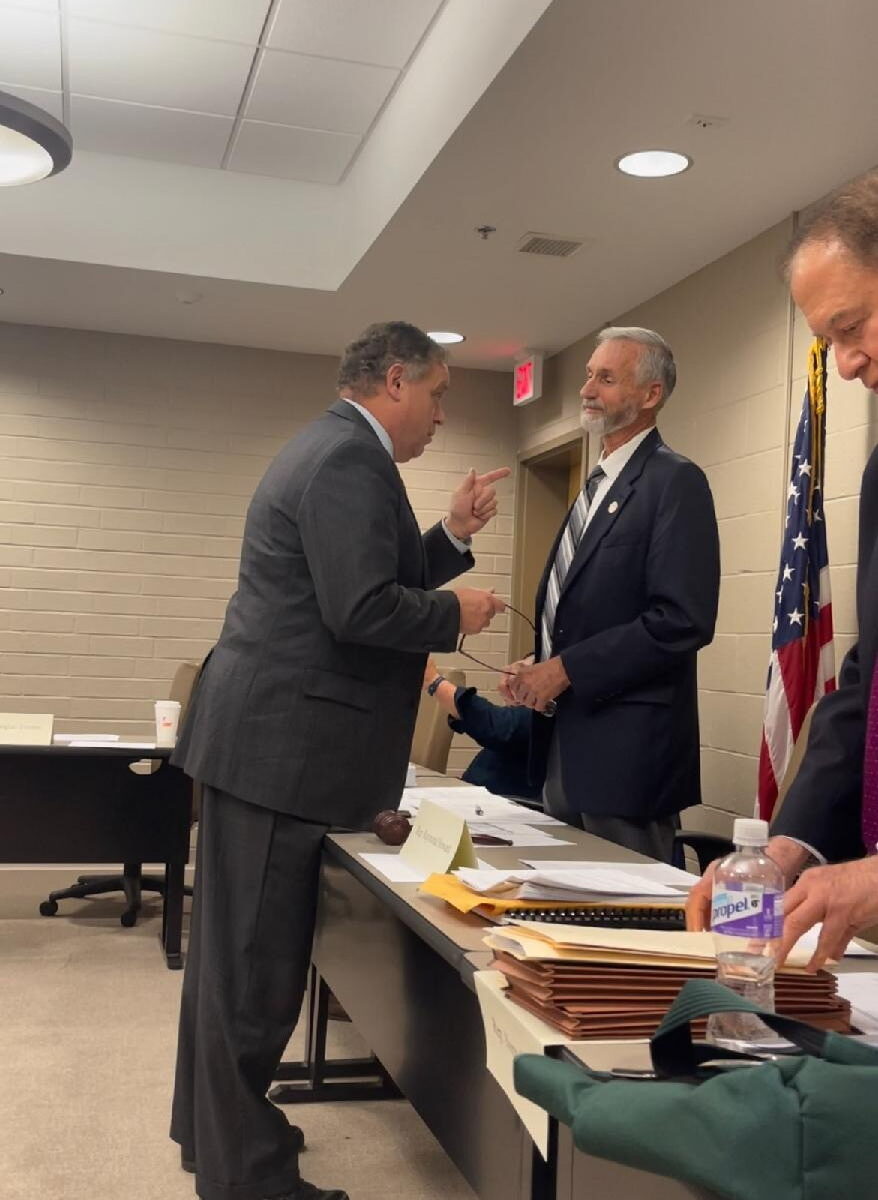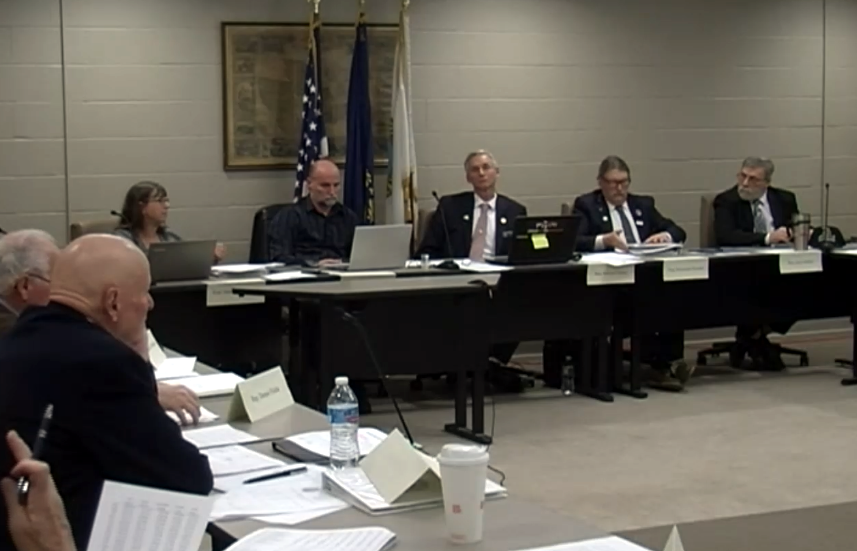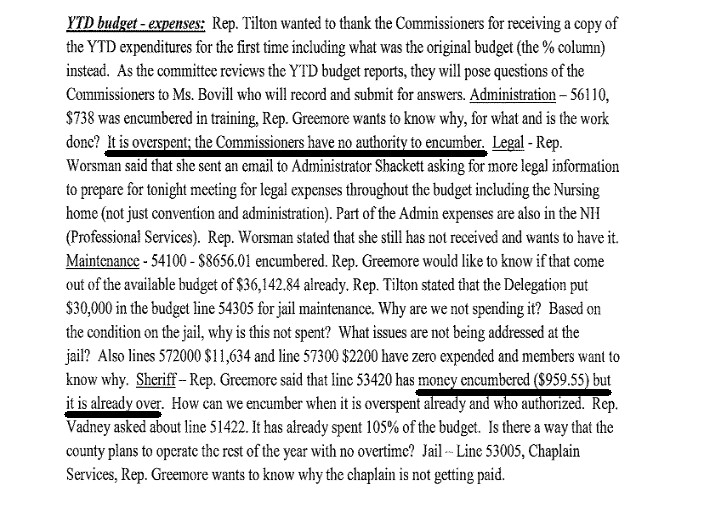Comments to the Belknap County Delegation November 16, 2021:
We are here tonight to address what has become a hot topic around Belknap county and beyond; Gunstock Mountain Resort.
Let’s start with a point on which all agree; Gunstock is a valuable county asset. As such it is in the interest of all in the county to assure it continues to be properly run and maintained. As far as I know there is no one that is interested in closing or harming Gunstock.
Many people have been chiming in with their opinions on the proper operation of the Gunstock ski area. Having attended most Gunstock Area Commission (GAC) meetings for the past couple of years I have to ask, where have you been?
If all those who write letters to the local paper had been attending GAC meetings, we might not be in the position which requires involvement of the delegation. The letters you write are based solely on information delivered by sources that have their own agenda. You have been used to support a plan of which you know little. Even those who have been following the actions of the GAC have only partial knowledge of the soon to be revealed Master Plan. It might be a useful exercise to ask the GAC when they voted to approve the Master Plan and when the public was allowed to comment on said plan.
Gunstock is a county owned and operated asset. It is not a private business. The GAC is a public body appointed by the Belknap county delegation. As a public entity it is required to adhere to the public meeting laws under RSA 91-A. The development of the Master Plan has had little to no public input and seems to have been produced by a subcommittee of the GAC, yet such a subcommittee has not met publicly nor produced minutes of any meetings. If this is true it is a violation of the right-to-know law, RSA 91-A. If it is not true the GAC can produce records of meeting dates and minutes, along with recommendations from the subcommittee made to the GAC. I have seen no evidence supporting the existence of such records.
GAC By-laws
Article II

Article III

Many letter writers have questioned the timing of the delegations action against members of the GAC. It was not the delegation that demanded the removal of commissioner Ness. The GAC put this issue on the table when they produced a defamatory and baseless claim against Ness. The GAC voted to get a legal opinion regarding the validity of their ethics policy, yet the resulting report from attorney Quarles wandered into defamatory allegations which lacked support of any witnesses or testimony. The GAC voted to censure commissioner Ness without due process. This key failure, to assure that the claim which was delivered to the delegation had merit, is the reason it was dismissed.
While there is currently insufficient evidence available, the GAC votes lacking verifiable facts might be considered reckless and harmful actions against a public official and should be referred to the Attorney General. The report produced by attorney Quarles went beyond the issue of the ethics policy which was approved by the GAC. The report was clearly defamatory. Motivation for the production of the report may be tied to commissioner Ness’ diligence in seeking information necessary to his duties as a member of the GAC. As the scope of work was beyond that which had been authorized, a case for the misuse of funds may be made. Improper Influence – RSA 640:3, Criminal defamation, RSA 644:11, Obstructing Government Administration, RSA 642:1, Official Oppression – RSA 643:1, Conspiracy – RSA 629:3, are criminal elements that may be at issue, along with civil claims that could be brought in the future.
It has been said that the actions of the delegation are unprecedented, and it is true. Unfortunately it is also extremely rare for a board to seek the removal of one of its own members. Once again the delegation is not the initiator of the events. We as a delegation have a duty to ensure that the GAC is properly serving in the public interest. To do anything less is to shirk our responsibilities.
Among many false allegations is an assertion that Gunstock might be closed. This is pure nonsense. Those who spread such absurdities only wish to irresponsibly drum up fear. One is left to speculate as to the source. Perhaps the Laconia Daily Sun would like to advise the public as to the people behind Citizens For Gunstock’s full page ads, or those 2 pages of petition signatures. Sadly it is unlikely that those who signed the petition had much knowledge of that which they signed.
The GAC repeatedly claims credit for the great performance of Gunstock in the past year. While it was a very good year, it would be hard to find a business in outdoor recreation that did not do extremely well in the year of COVID19; housebound people were deprived of their normal activities which would have them in close contact with other people. Boston area skiers unable to get on airplanes swarmed to the north making it a great year for all eastern ski areas. It certainly didn’t hurt to have a reasonably good winter for snow cover. This is said not to diminish the efforts of the employees but to simply put the great fiscal performance in perspective.
Speaking of the financial success of Gunstock, the GAC never fails to remind the public that they have always paid off in a timely fashion their Revenue Anticipation Notes (RAN). It is indeed true. What they never mention is the $6,000,000 default in 2000 which was picked up by county taxpayers. I can assure you the payments made to the county over the past 20 years have not amounted to recovering that loss. I’ll not venture into what kind of bonding might be suggested in the new Master Plan as I have no such knowledge.
As was noticed on Nov. 6, 2021, “On Monday October 25, 2021 attorney Thomas Quarles presented to the Belknap county delegation a Request for Disqualifications (RFD). This request was addressed from four members of the Gunstock Area Commission (GAC), Kiedaisch, Gallagher, McLear, and Dumais. In this request it is made clear by the use of their titles that they are acting as members of GAC.” What is not clear is how attorney Quarles was hired without a meeting of the GAC. This is contrasted by the vote on Nov. 10, 2021 in a public meeting (for which public comment was not allowed) to have attorney Quarles file for a temporary restraining order against the delegation. It appears that attorney Quarles was hired in an unnoticed meeting, prior to producing the RFD, in violation of RSA 91-A. If true, this stands as ‘just cause’ for removal.
Another perplexing question arises from that Nov. 10, 2021 vote to retain counsel. The temporary restraining order explicitly seeks to protect commissioners Kiedaisch, Gallagher and McLear from removal. They had a clear conflict of interest yet they were the only commissioners voting to approve the motion to engage counsel. Expending funds from Gunstock for their own personal protection might be viewed as ‘just cause’ for removal.
Once again, I know of no one that wants to close or harm Gunstock. My only agenda is open and transparent operation of a county asset. I will continue to work for good government and a successful Gunstock Mountain Resort.
Rep. Mike Sylvia
Chairman, Belknap County Delegation
PUBLIC MEETING NOTICE:
The November public meeting of the Gunstock Area Commission will be held on Wednesday, November 17th at 6PM in the Historic Lodge at Gunstock Mountain Resort. To view the public notice and tentative agenda, please click here.








